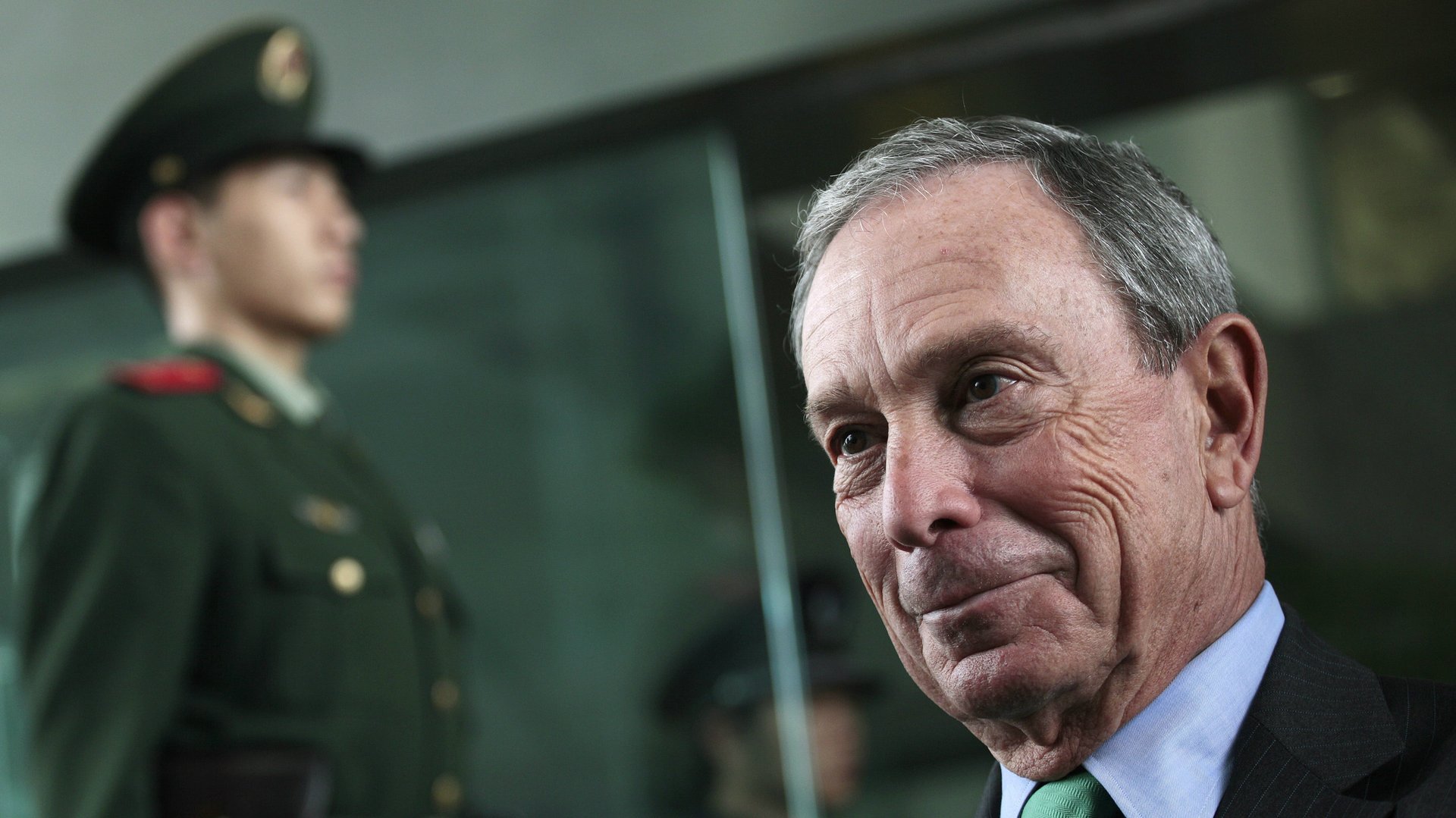Paulson, Geithner, and Bloomberg want to bring the Chinese yuan to Wall Street
Some of the biggest luminaries of US finance are spearheading an effort to bring the Chinese yuan to America. Michael Bloomberg, founder of the eponymous financial news and data business and former mayor of New York City, will chair the Working Group on US RMB Trading and Clearing, as it’s called. Former US treasury secretaries Henry Paulson and Timothy Geithner will serve as co-chairmen.


Some of the biggest luminaries of US finance are spearheading an effort to bring the Chinese yuan to America. Michael Bloomberg, founder of the eponymous financial news and data business and former mayor of New York City, will chair the Working Group on US RMB Trading and Clearing, as it’s called. Former US treasury secretaries Henry Paulson and Timothy Geithner will serve as co-chairmen.
The group aims to lay out the financial architecture to trade and clear payments of the yuan on US soil. This will involve “educating the US marketplace on the benefits and mechanics of RMB trading,” among other things, according to the press release. (RMB is another name for yuan.)
Is it kind of weird that so many titans of American finance are going to evangelize the use of the yuan to US investors?
To hear the working group explain it, no. In fact, it’s altruistic. Advancing “a mechanism to trade the Chinese currency in the United States will improve the competitiveness of U.S. companies, while furthering America’s financial sector and economy,” said Bloomberg in a press release. It will do this mainly by lowering costs of imports, making it easier for American businesses to export to China, and boosting business for American financial institutions, says the group.
In reality, it’s unlikely to have such a big impact, though. Because the People’s Bank of China tightly manages the yuan’s value in relation to the dollar, American businesses face minimal exchange rate risk as long as the government maintains the dollar peg, says Derek Scissors, economist at American Enterprise Group.
“The effect on US competitiveness is less than a bad thunderstorm,” says Scissors.
Even if the yuan did float freely, since the greenback is the dominant international currency, American companies tend not to face the currency risk that other countries’ firms do. And despite its not having a retail trading center like the UK or Singapore, the US already participates in a heavy share of international yuan transactions.
So what’s really behind the push? Of course, we can only speculate, but Scissors sees some political posturing afoot.
“Geithner and Paulson are just protecting their status as ‘the China guy’ for each party,” says Scissors. “If Bloomberg is actually going to associate himself with this, I take it as a sign he isn’t running for national office.”
The remarks refer to rumors that Bloomberg is mulling a presidential run as an independent. The involvement of a slew of prominent Wall Street banks in the working group, adds Scissors, suggests that a run for New York state office might not be out of the question.
Beyond Bloomberg’s political ambitions, the former mayor might have other reasons for promoting yuan internationalization—a campaign that China’s leaders see as boosting the country’s global prestige. Bloomberg’s company sees China as a major growth opportunity (paywall) for sales of its terminal business—something that may have influenced the controversial quashing of a Bloomberg investigative piece in 2013.
As head of Goldman Sachs, Hank Paulson led the bank’s push into China. Since leaving the US government, he launched a think tank devoted to promoting US-China collaboration, and continues to be one of the few global leaders who boasts a relationship with president Xi Jinping. Geithner, meanwhile, studied Mandarin in Beijing while in university and is considered by some to be one of the US’s better navigators of US-China relations.